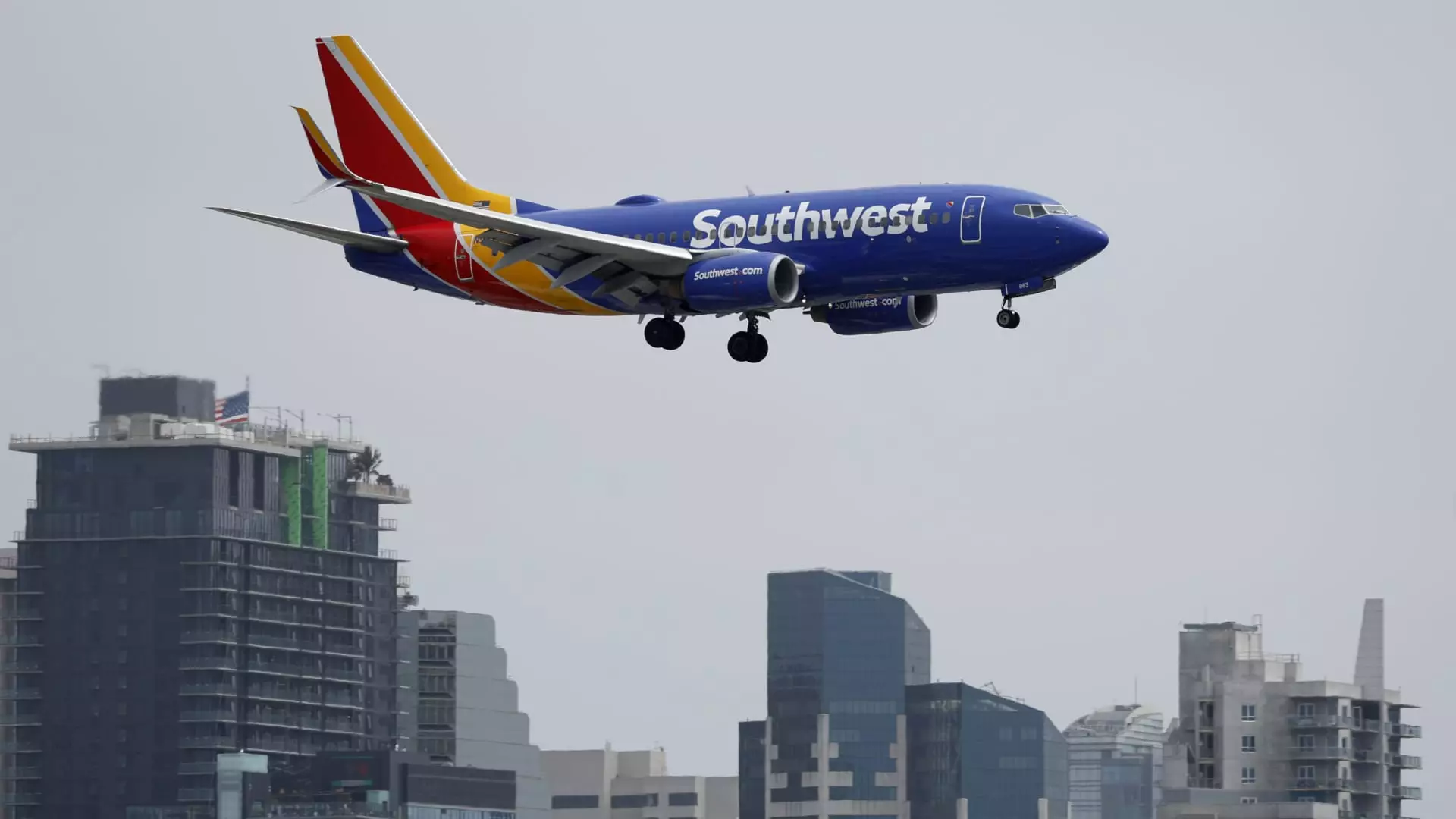In an evolving aviation market, Southwest Airlines finds itself at a crucial juncture, facing mounting pressure from activist investors like Elliott Investment Management. The airline’s leadership has warned employees of the need for “difficult decisions” to enhance profitability, signaling that the stakes are higher than ever. In a landscape where operational agility is paramount, Southwest’s response to activist demands and shifting market dynamics could redefine its path forward.
This summer, Southwest Airlines embarked on a significant transformation of its longstanding business model, which has thrived for over 50 years. The key initiatives announced include a departure from open seating arrangements in favor of assigned seating, an introduction of premium seats with enhanced legroom that promise higher fares, and the addition of overnight flights, known in the industry as red-eye flights. Additionally, the airline has started listing its flights on platforms like Google Flights and Kayak, marking a notable shift towards modern marketing strategies targeting younger travelers. Greg Watterson, the airline’s COO, emphasized in a recent message that while these changes are pivotal, they are only part of a broader strategy to restore financial health to the airline.
As Southwest Airlines evaluates its operational model, the COO has acknowledged the need for network realignment. In his communication with the employees, Watterson noted, “We have a couple of difficult decisions heading our way,” implying a thorough review of routes and possibly reconsideration of presence in certain cities. These changes, while crucial, will not involve station closures; rather, they may lead to staffing reassignments to boost efficiency. Such strategic moves echo broader trends in the airline industry where competitors like JetBlue have already adjusted their route offerings to focus on more lucrative operations.
The pressure from Elliott Investment Management not only raises concerns about the company’s immediate strategies but also about its leadership. The investment firm has been vocal in advocating for a change in management, criticizing current leadership for not taking adequate measures to improve the company’s financial performance. Recent announcements from Gary Kelly, the executive chairman and former CEO, regarding his forthcoming departure from the board following next year’s shareholder meeting, signal a turbulent yet transformative phase for Southwest Airlines.
On an upcoming investor day in Texas, Southwest Airlines is set to outline further details about initiatives and route changes. This event will be critical not only for the company’s future directions but also for restoring investor confidence. As Southwest navigates through these challenging waters, the focus on adaptability, financial sustainability, and customer satisfaction will determine its success in reclaiming its position in a fiercely competitive airline market. The combination of strategic revisions and leadership transitions could pave the way for renewed growth, provided that the airline can deftly balance the needs of stakeholders with operational realities.

